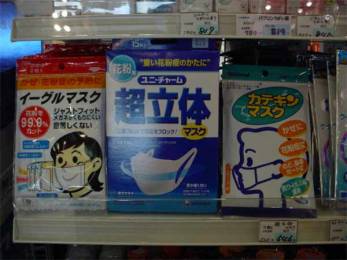
Healthcare, medicine & pharmaceuticals
Bedside manners
According to research conducted by the Mayo Clinic, getting a doctor to sit down during a bedside visit can increase patient satisfaction. For the study doctors were asked to either sit or stand during their initial evaluation, and when the patients were questioned later, those whose doctor was standing underestimated the time of the visit by an average of 4%, while those whose doctor was seated overestimated the length by 11%. With many healthcare providers finding that one of the key indicators of patient satisfaction is time spent with their doctor, it's a cost-free way to improve their services. While the posture of the visiting physician does nothing to affect the actual quality of care given to the patient, it means that hospitals can increase satisfaction without increasing the time doctors spend on their rounds. Meanwhile, Italian research claims that children that are waiting for surgery are much less nervous if there are clowns in the operating theatre while US researchers have found that when people are anxious or in pain, holding hands has a soothing effect on the brain. Not only that, if the person holding your hand is your partner, the effect is far greater than with a stranger.
Ref: Various including Doors of Perception (UK), 6 July 2006, 'Save billions by sitting', J.Thackara. www.doorsofperception.com
Search words: patient satisfaction, pain, anxiety, post-operative recovery
Links: use of music, paintings and pets in hospitals
Post-surgery pop
Another low-cost treatment being explored in hospitals is the use of music to relieve pain. Studies have shown that playing music to patients post-surgery can reduce the need for morphine-like painkillers by up to 10%. While this is a relatively small benefit, approximately the equivalent of taking an aspirin, the idea has been encouraged because there is no risk of side effects and the treatment is very low cost. The results were the same regardless of whether the patient was allowed to choose the music or not, but practitioners recommend that the selection includes the patient's favourite songs or tunes with a meditative tempo.
Ref: The Times (UK), 22 April 2006, 'Tuning out pain', J.Naish. www.timesonline.co.uk
Search words: surgery, pain relief, alternative
Light on calories = light headed
If you think taking a slimline tonic with your gin is the sensible choice then think again - it could actually leave you quite light headed. Australian researchers have advised that the use of artificial sweeteners in diet mixers can lead to unexpected side effects. The study, conducted by the Royal Adelaide Hospital, found that the sweeteners speed up 'gastric emptying', leading to an increase in the rate at which the body absorbs alcohol by up to 25%. And not only will you get drunk faster, you'll also be up to 25% tipsier. Lead researcher Dr James Rayner has called for warnings to be issued on diet mixers, alerting drinkers to the fact they might find themselves drunker than expected.
Ref: The Times (UK), 27 May 2006, 'Tipsy on tonic', J. Naish. www.timesonline.co.uk
Search words: artificial sweeteners
Infovores
We've all felt the enjoyment that comes with thinking up a new idea, but have you ever stopped to think about why we find this so pleasurable? According to a study in American Scientist, our brain is rewarded with natural opium-like substances whenever we acquire new information. Neuroscientist Irving Biederman says human beings are 'infovores' meaning we have an innate craving for information. And it's all down to evolution: because being smart makes us a more attractive mate, our bodies have developed with a rewards system for grasping new concepts. But don't feel you need to go reaching for that algebra textbook in the hope of getting a natural high, the process can be as simple as looking at an unfamiliar painting.
Ref: American Scientist (US), Volume 94 Issue 3, May-June 2006, 'Perceptual Pleasure and the Brain', I. Biederman and E.A. Vessel. www.americanscientist.org See also The Times (UK), 24 June 2006, 'Addicted to ideas', J. Naish. www.timesonline.co.uk
Search words: ideas, brain, reward
Solo living can break your heart
Living alone can be bad for your heart, both figuratively and literally. A recent Danish study has found that older people that live alone have a greater risk of sudden heart episode than those living with others. It's a danger for men over 50, but not so much for women until they hit 60; but for both sexes, living alone after this age can double the risk of a heart episode. The authors note that it is important to look beyond physical factors such as diabetes and smoking and examine the social and environmental issues that may contribute to heart disease, tying in with previous studies that suggest those of a lower socio-economic group or with a lack of social support are a higher risk group for heart episodes. While social isolation may play a big part in this, those living alone have an increased likelihood of classic individual risk factors such as smoking, obesity and a high cholesterol diet. And in some cases these people may have withdrawn from society because they are already ill.
Ref: Australian Financial Review (Aus), 20 July 2006, 'Living alone is singularly bad news for your heart', J. Margo. www.afr.com.au
Search words: heart disease, social isolation, loneliness, singles
